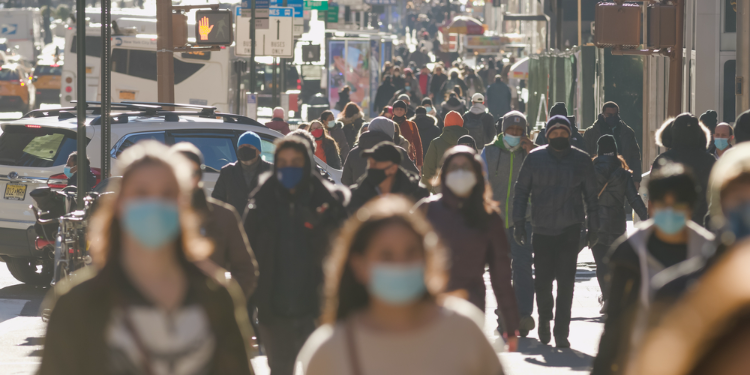What is a high-risk country?
High numbers of Covid-19 cases and high death rates are the main indicators for considering a country as high-risk. However, this depends on the seasonal effectiveness of the virus, the number of upcoming visitors, and the overall immunization in the country (considering the numbers of available vaccines and tests).
In the US
While the list of risk countries is ever-changing, some countries are currently listed on the CDC's very high-risk list, so they are considered areas where travel should be avoided at the moment. Some are prohibited, such as China, Iran, the Republic of Ireland, Brazil, South Africa, India, the European Schengen area and the UK. These rules are, however, about to be changed for some places, allowing access to fully vaccinated citizens. The current rules are following:
- If you are vaccinated by an FDA-authorized vaccine (Comirnaty and Pfizer-BioNTech, Moderna and Janssen), you are not advised to get tested before travelling outside of the US, but will have to be tested prior to your return and 3-5 days after)
- You do not have to stay quarantine upon arrival
For non-vaccinated travellers, the current requirements apply:
- Get tested before your travel outside of the US and prior to your return
- Self-quarantine for ten days, which can be shortened if you have a negative result on the 7th day
The general international rules for travelling to a very high-risk area or a variant area are:
- Wearing a mask
- Keeping a safe distance in crowds
- Self-monitoring for symptoms
In the EU
The European Union has a similar monitoring system. For instance, in Germany, the Robert Koch Institute lists countries based on their current case numbers, deaths and variants. While the consensus about risk areas is usually unanimous, you can always get informed about peculiarities on your country's website. For more information regarding the classification in France, check the governmental website; Il Ministero della Salute for Italy, Ministerio de Sanidad for Spain, Service of the Republic of Poland for Poland, Protocol of Arrival to Greece for Greece. While European countries have a similar framework, some have different rules when accepting vaccines and quarantine rules; that is why it is best to get informed on each country's official health ministry websites.
High-risk places today
High-risk places are regions where the influx of people raises the number of infections. These places can seem very inviting for travellers and expats who received a visa or decided to spend their digital nomad days in a new exciting destination. If you are preparing to live in a high-risk area, you should be aware beforehand of all the risks and how to prepare yourself for moving. Such places are the following:
Iceland is considered a risk area, meaning that even fully vaccinated travellers may get and spread COVID variants. While this beautiful country has the second-best healthcare in the world, the stream of people may put you at risk. Before entering the country, you will want to check the current entry rules. At the moment, people who have been infected and fully vaccinated people (with the two weeks after the second dose) are exempt from testing. For unvaccinated travellers, the rules are following: You must provide a negative PCR test taken 72 hours prior to your visit. Additionally, you might have to take a test upon your arrival at the airport and undergo five days of quarantine followed by a second test.
Children of the age 15 or younger are not required to do a test. If they are travelling with vaccinated people or people who have already had the infection or have been vaccinated, they are not required to stay in quarantine. However, if the children travel with someone who must go into quarantine, they must too. Information for scheduling a test are available on covid.is.
The Balkan Peninsula and its countries Serbia, Albania and North Macedonia report high numbers and are considered risk areas. If you decide to travel to these countries, you will need proof of completed vaccination, a certificate of having been infected in the last 30 days, a PCR test in the last 72 hours, or an antigen test in the past 24 hours. Subsequently, North Macedonia requires a vaccination certificate for all the bars and restaurants, both indoors and outdoors. For more information regarding the regulations for travel to North Macedonia, you can check on the website of the Ministry of Foreign Affairs. Information regarding travel to Serbia is available on their Ministry's website. For more information about travelling to Albania, you can check the website Visit Tirana.
Since the 1st of October 2021, Mauritius has lifted its strict restrictions for travellers. This has made the island a very attractive destination for expats who seek places with a warm climate and natural beauty. Due to the high numbers of travellers and infections, visiting the island at this time is not recommended. However, suppose you have already set your mind on visiting Mauritius. In that case, you will need COVID-19 health insurance coverage (unless you are a resident there), regardless of whether you are vaccinated or not. If you are vaccinated, you will have to present a PCR test 72 hours before departure, following another test on the fifth day of your arrival. If you are unvaccinated, you will have to book a quarantine stay for 14 days. You will have to provide a PCR test, before your arrival, on the seventh day and the fourteenth day.
The list of high-risk countries is long and changing constantly. Therefore, it is best to be careful with your travel and moving choices. The lesson of the pandemic is that it is important to be more mindful in our actions, so check about the requirements for visiting your destination and determine if your decision is worth the procedure. Additionally, healthy eating habits, supplementation, and good sleep will increase your overall health during travel. Good preparation and caution will help you to reach your desired destination safely.









